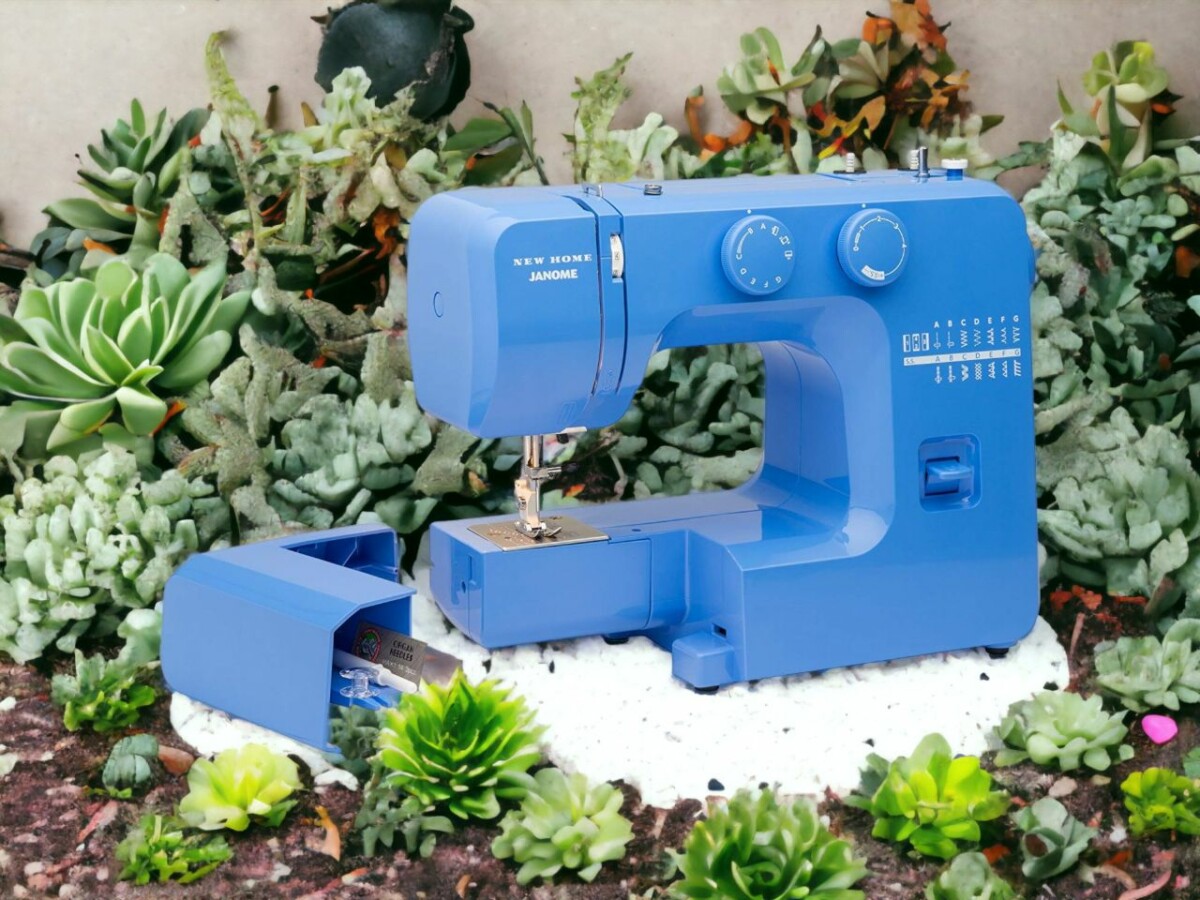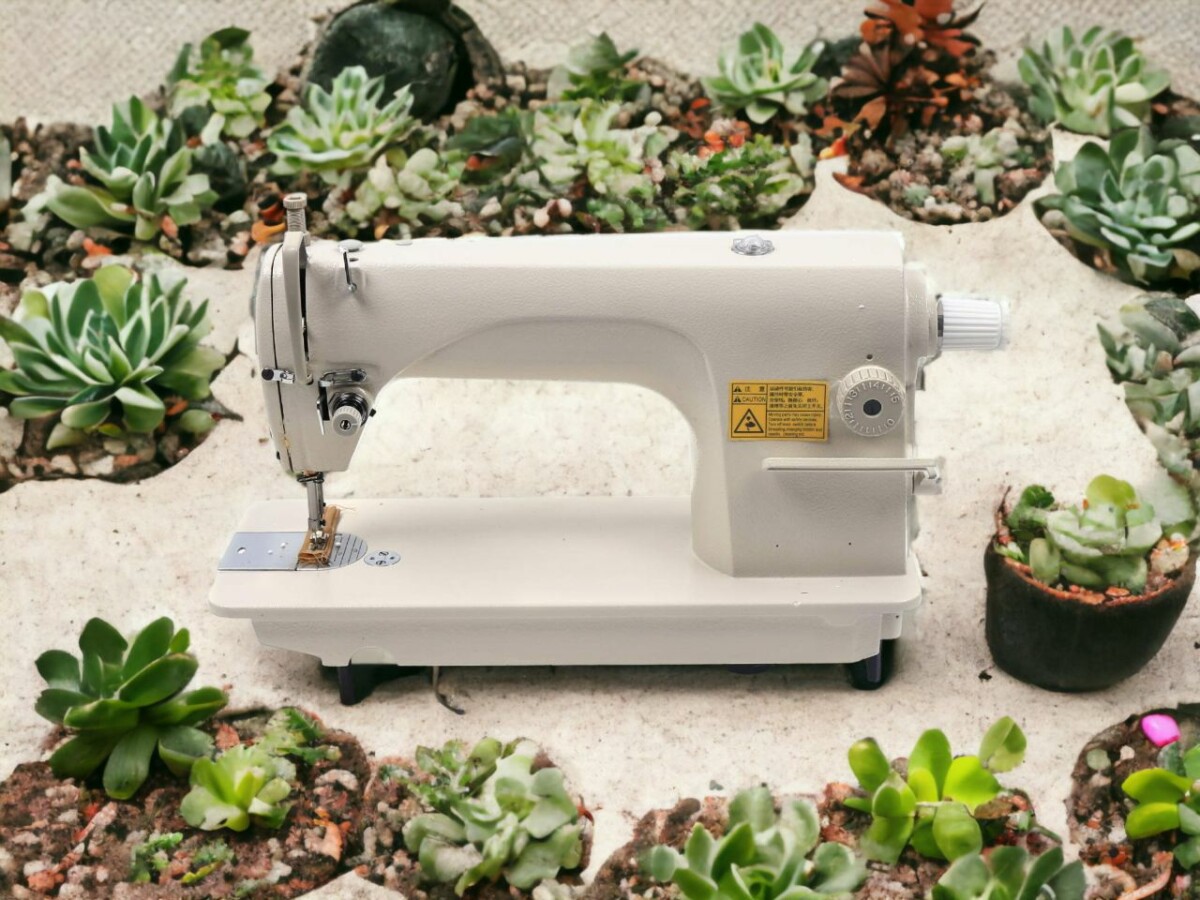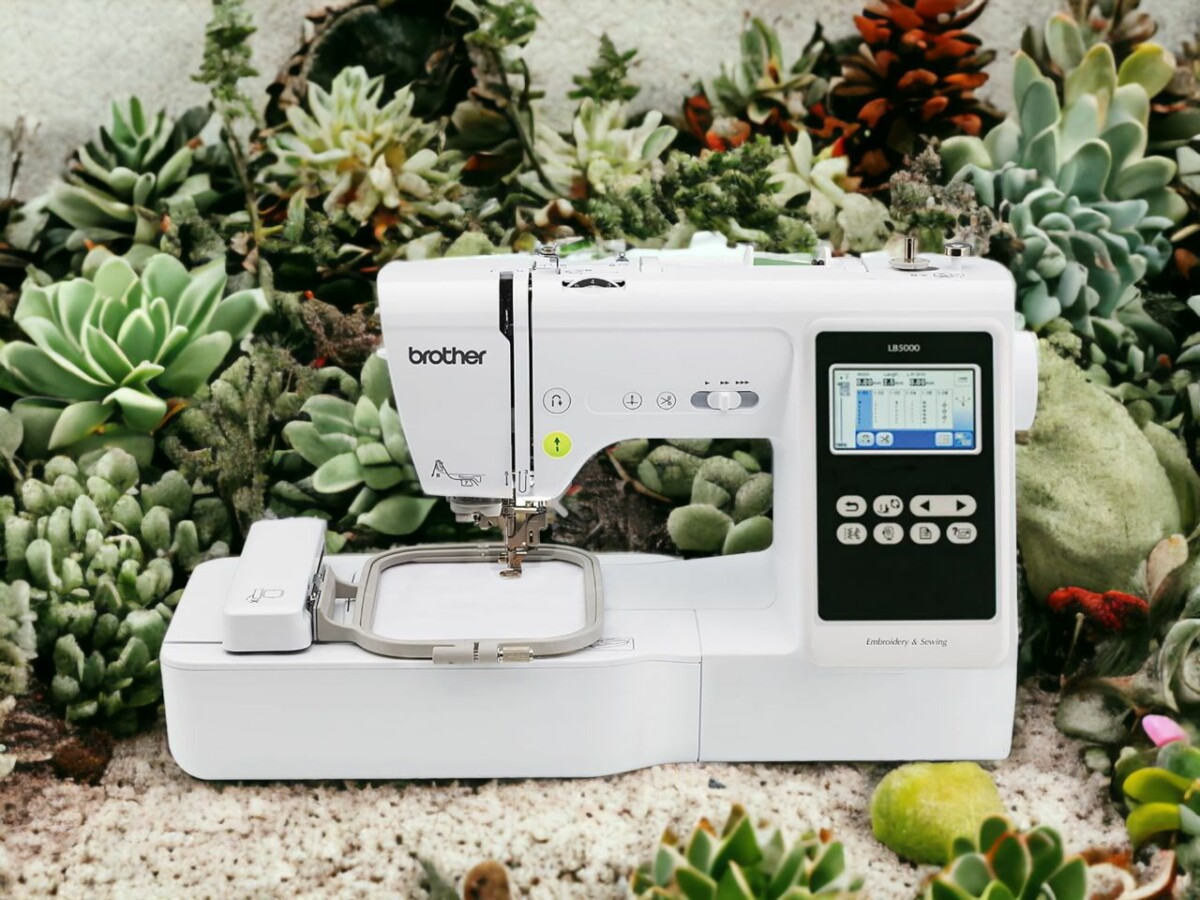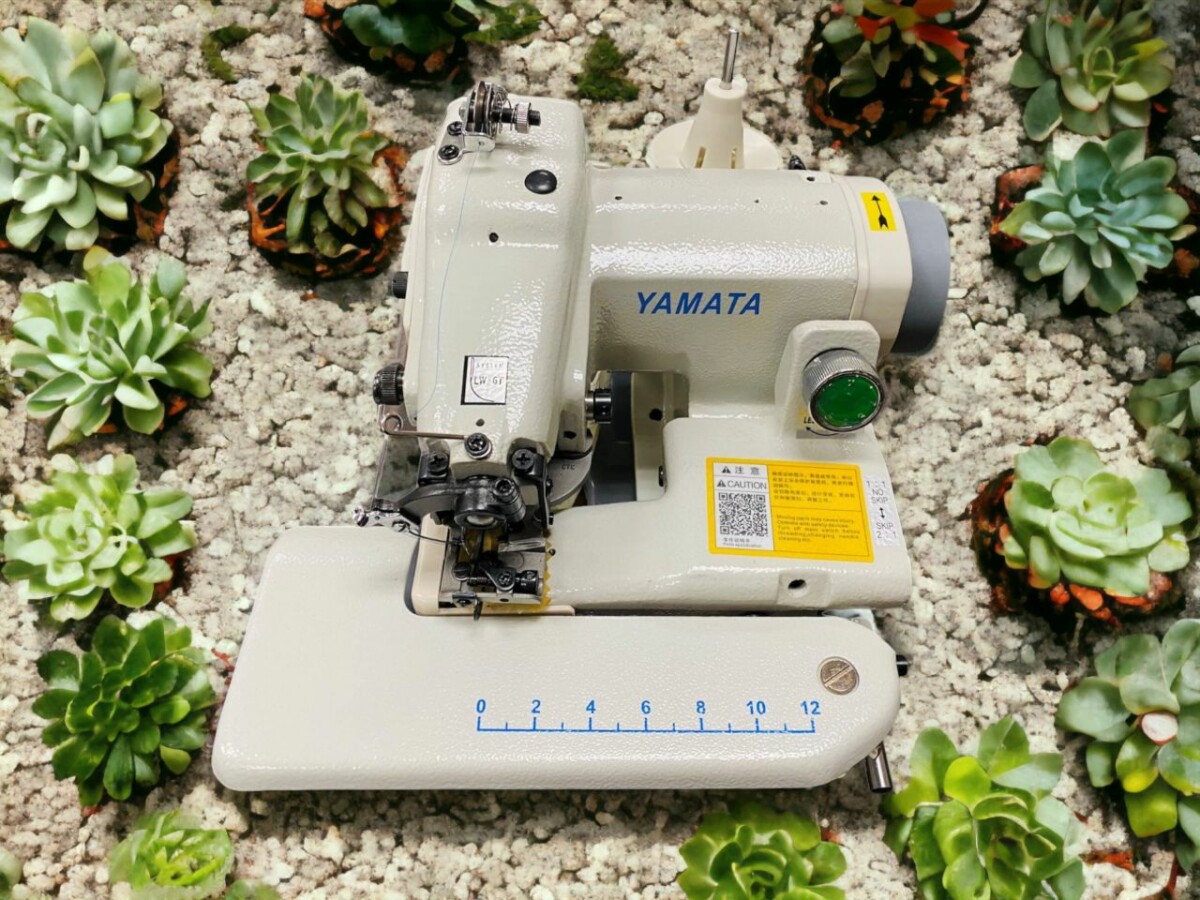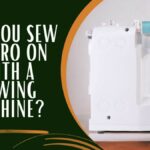So, you’re pretty into sewing, right? Spending countless hours meticulously crafting your projects, but now you’re wondering if it’s time to step up your game.
The question is, do you really need an industrial sewing machine, or is that just going a bit overboard? Alright, let’s break it down and weigh up the good, the bad, and the downright confusing.
It’s time to shed some light on industrial sewing machines and figure out if one is the missing piece in your sewing journey.
Is An Industrial Sewing Machine Needed?
Whether you need an industrial sewing machine really comes down to what kind of sewing you’re doing and how much. If you’re frequently dealing with heavy-duty materials or need a beast machine that can handle lots of action, an industrial sewing machine should be right up your alley. These babies are designed for the long run, can sew at lightening speeds, and are tough enough for rugged materials. But if you’re just sewing now and then or only handling lightweight fabrics, a regular domestic machine should do the trick just fine. Save the heavy-duty stuff for the heavy-duty work.
Getting the lowdown on the perks of industrial sewing machines means acknowledging their beastly power to take on heavy-duty tasks, step up your sewing game speed-wise, and potentially amp up the overall quality of your project. As you delve into the world of industrial sewing machines, you’ll discover they’re pretty much an all-rounder, breezing through a range of fabrics from the softest silks to the toughest leathers. This kind of flexibility makes them a total game-changer for any hardcore sewing fans or pros out there.
But hey, it’s not all about the muscle and adaptability. Getting clued up on the upkeep needs of industrial sewing machines is crucial. Sure, they need a bit of TLC now and then, but don’t let that put you off. With the right care, these machines can deliver the goods, giving you top-notch performance consistently for a good few years. So, splashing the cash on an industrial sewing machine could be the secret sauce your sewing projects have been craving.
Evaluating the Drawbacks of Industrial Sewing Machines
Sure, industrial sewing machines can be absolute beasts, with their power and consistency that just leaves you in awe. But, like everything else, they’ve a flip side too. So, here’s the real tea on these machines:
- First off, these machines are pretty loud. If you’re planning to sew for hours, you might need to shell out for some noise-canceling headphones. So, that’s an additional expense you didn’t bargain for.
- Secondly, these machines don’t exactly help you save your pennies. They come with a pretty bulky price tag and the cost of keeping them running smoothly can pile up over time.
- Size is another thing to think about. These machines take up a chunk of space, so if you’re already tight on room, you’ve got a problem.
- Finally, you can’t just wing it with these machines. They need specific know-how to operate. Without the right training, you might find yourself in a bit of a pickle.
Comparing Industrial Sewing Machines With Domestic Ones
So, we’ve all had a go at a domestic sewing machine at some point, right? But when it comes to the industrial beasts, there’s a whole new ballgame to get your head around. You’ve got to bear in mind things like what fabrics you’re going to tackle, how much sewing you’ll be doing, and how pro your skills are.
Industrial machines are like the superheroes of the sewing world, smashing through heavy-duty jobs and tough materials without breaking a sweat, while also being super-fast and precise. But let’s not sugarcoat it, they’re loud and, yeah, can be a bit pricey.
On the flip side, domestic machines are like your trusty sidekicks. They’re quieter, easier on the wallet, and are great for your everyday sewing projects. But here’s the twist: shelling out for an industrial sewing machine could actually be a smart move in the long run, especially if you’re diving into some specialized tasks. It could genuinely pay for itself before you know it!
Different Types of Industrial Sewing Machines: A Closer Look
Alright, before we get into the nitty-gritty, let’s take a quick tour of the variety of industrial sewing machines you can find out there. Trust me, there’s a whole lot of diversity, from their key features to the brand and model.
So, let’s take a peek at some of them:
- Flatbed: This is your basic, run-of-the-mill kinda gig. It’s your traditional sewing machine lookalike but don’t be fooled, it’s got quite the punch for stitching together flat fabric pieces. You know, like stitching up a nice throw for your couch!
- Cylinder-bed: This one’s got a narrow, horizontal cylinder design. It’s your go-to for sewing round stuff, like cuffs. Imagine the perfect cuffs on a shirt, yeah, that’s the magic of this one!
- Post-bed: Standing tall with a vertical column, these machines are champions at attaching emblems, badges and the like. Think of it like your own little factory for making that custom jacket you’ve always wanted.
- Off-the-arm: Now this is a rare gem. It’s meant for tasks like sewing tubular items, like sleeve cuffs. A little niche, but hey, we all need a specialist sometimes, right?
Each of these machines has its own pros. So, when you’re picking one, think about what you need it for. You want to make sure you get the right tool for the job, you know what I mean?
Making the Decision: Do You Really Need an Industrial Sewing Machine?
So, you’ve been mulling over the pros and cons, yet you’re still not sure if shelling out for an industrial sewing machine is truly worth it for your sewing escapades. Let’s dive a bit deeper, shall we?
Before you go all-in and invest in one of these bad boys, you need to consider a few things – like how often and how much you’re going to be sewing, the type of material you’ll be working with, and of course, how much you’re willing to spend.
These machines are no joke, they’re built to last and can take on some pretty heavy-duty sewing jobs, handling large volumes of work like a champ. But, they do come with a pretty lofty price tag. If you’re not constantly dealing with intense sewing projects, you might want to consider other options.
There are plenty of top-notch home sewing machines or even specialized machines for certain tasks that could do the job just fine. Always remember, your decision should be in sync with what you aim to achieve with your sewing, how much you’re willing to shell out, and what you see yourself doing in the future.
Closing Header: Saying Yes to Industrial Sewing Machines
Okay, so picture this. You’ve scrolled down to the nitty-gritty, and you’re still indecisive. Well, feel free to revisit some vital checkpoints before making your verdict on whether you need an industrial sewing machine or not.
The question of whether or not sewing machines come with thread may sound pretty simple, but hang on. It’s the small things that make a big difference. And it’s no exception with sewing. Because yeah, it turns out, figuring out if your sewing machine comes stocked up on thread can be a real game changer. If it does, you might be looking at some serious savings you weren’t expecting!
What about sewing machine oil getting old? Ever thought about that? Well, you should! Let’s just put it this way: If you’ve got a machine kicking around that’s running on outdated oil, buckle up, because you’re in for quite the ride. Maintenance and machine performance go hand in hand, folks. So, ensuring your oil isn’t as ancient as the dinosaur’s is a pretty smart move.
Then again, maybe you’re curious about the lifespan of certain machines? To get to the bottom of the question, “how long do Brother sewing machines last?,” you need to dive a little deeper. Brands matter, as does model and usage. So, to generalize isn’t always the best route.
So there you have it! From thread issues to long-lasting machines and even the age of your sewing machine oil, these considerations are key when considering if an industrial sewing machine is the right choice for you. It’s always about equipping yourself with the right set of tools to escalate your sewing prowess. That’s the real stitch!
I graduated from London College of Fashion, and I’ve been working for a Fashion Design company for 10 years. My other hobbies are going to the gym and reading.


